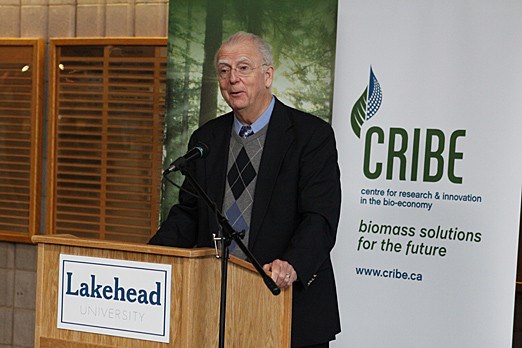The Centre for Research and Innovation in the Bio-Economy has opened the doors for Lakehead University researchers to work at a bio-refinery plant in Chatham, Ont.
CRIBE announced Tuesday it will provide $3 million for a partnership between Lakehead University’s bio-refining research initiative and G2 BioChem in Chatham, Ont.
CRIBE will distribute $2 million to the facility in Chatham, $894, 500 to Lakehead University for research and another $150,000 to LU for a biomass recovery project. The partnerships will also allow Lakehead University researchers, students and CRIBE members full access to the facility for their projects.
Bob Benson, director of research for Green Field Ethanol, said they plan to use the money to build a demonstration plant within their existing facility. He said it’s beneficial to Lakehead University since they can use their facility and not have to build one of their own.
"For a CRIBE investment of $2 million, Lakehead University gets full use of this very expensive and elaborate facility," Benson said. "The fact that Lakehead University has also received a grant enables their research on areas that we haven’t spent a lot of time on."
Rui Want, vice-president of Research, Economic Development and Innovation at Lakehead University, said access to the facility as well as the grant will go a long way to ensure the university’s research will make a positive impact on the economy.
"We have the best brain in Bio-energy, not only in the north but in the nation. But to make that difference we need help and CRIBE gives us that help," Wang said. "Through this CRIBE funding we’re building up our linkage between northern and southern Ontario. Bio-refining is really the future."
He said natural resource economies have a limit, unlike the knowledge economy that can continue to expand and adapt, which is why it’s important for Lakehead University to take that leadership role.
Sign in or register
- Messages
- Post a Listing
- Your Listings
- Your Profile
- Your Subscriptions
- Your Likes
- Your Business
- Support Local News
- Payment History
Registered Users
Already have an account?
New Users
Create a free account.
